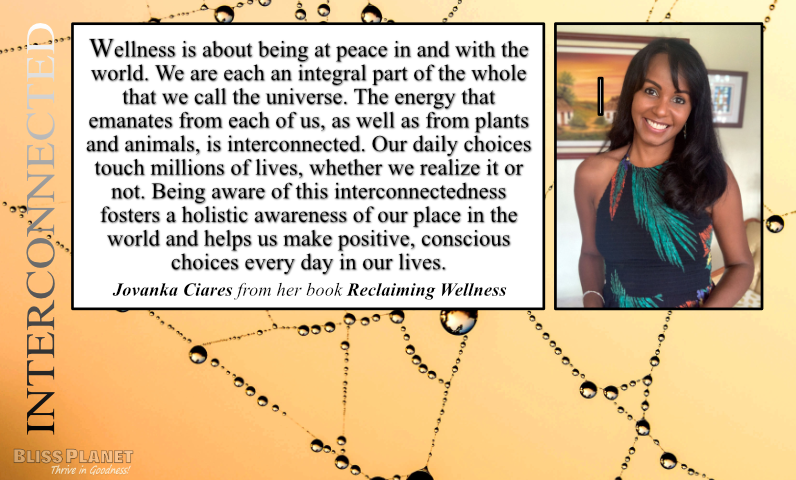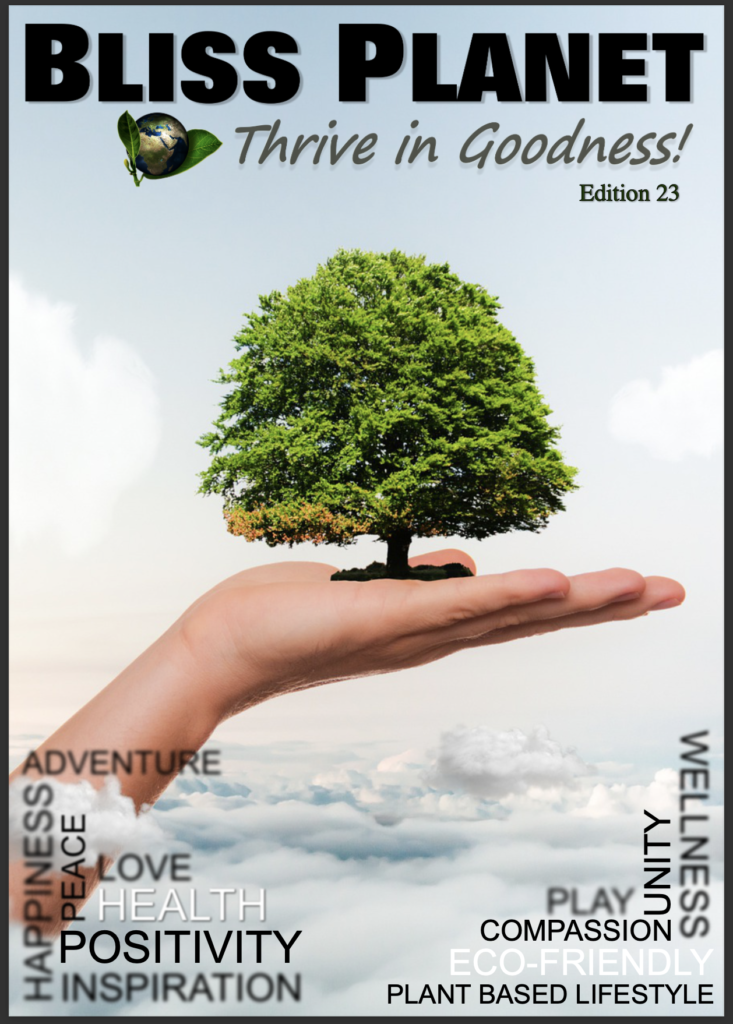An Excerpt from Reclaiming Wellness by Jovanka Ciares
Wellness is for everyone: young and old, sick and healthy, rich and poor, and all races and ethnicities. Wellness also includes everything, or all aspects of our lives, and the ultimate goal is to achieve positive, sustainable, long-lasting changes. Wellness is not a single thing we do, it doesn’t happen all at once, and our wellness practices should increase happiness, not feel like a chore.
Ideally, wellness is how we unlock and access the full potential lying within. This isn’t about following lifestyle rules to a T, but rather understanding our choices and owning them. We will certainly encounter roadblocks during this process, and that’s to be expected! Pursuing wellness with an “all-or-nothing” attitude is a nonstop ticket to frustration and failure. Instead, if we accept ourselves, and trust the natural process, things will slowly fall into place. Wellness is about creating balance and strengthening the connection between our physical, mental, and spiritual selves. As a result, what we do to achieve wellness will vary depending on what needs more attention at any particular time. For instance, if our spiritual life is strong but our physical activity isn’t, then we might find balance by focusing more on our physical self, while continuing to strengthen all the other parts that make us who we are.
In the big picture, wellness is about being at peace in and with the world. We are each an integral part of the whole that we call the universe. The energy that emanates from each of us, as well as from plants and animals, is interconnected. Our daily choices touch millions of lives, whether we realize it or not. Being aware of this interconnectedness fosters a holistic awareness of our place in the world and helps us make positive, conscious choices every day in our lives.
Health in the United States Today
The United States is the wealthiest nation in the world, and it knows how to spend! Americans spend more on healthcare per person than any other country, yet the nation consistently ranks lowest in comparative healthcare outcomes. I’ve often wondered why we worry so much about terrorism and natural disasters when the standard American diet is what we should fear the most:
- In the United States, approximately 33 percent of adults are overweight, another 38 percent are obese, and 8 percent are extremely obese.
- Heart disease, stroke, and cancer — diseases affected by diet and lifestyle — account for over
50 percent of all deaths in the United States each year. - Nearly half (47 percent) of American adults have high blood pressure, a precursor of heart disease.
- About 38 percent of Americans have high cholesterol, a major cause of heart attack and stroke.
- About 80 percent of heart disease–related deaths can be prevented with diet and lifestyle choices.
- In America, 50 million people have at least one autoimmune disorder that reduces their quality of life.
- The United States has one of the lowest life expectancies in the industrialized world.
Reclaiming Wellness: Own Your History, Own Your Health
Some of today’s most popular wellness practices can trace their history to parts of the world and cultures historically populated by people of color. Every society has pursued wellness, and as a woman of color living in the United States, one of my goals is to share this multicultural history and to encourage all people, but especially people of color, to embrace the knowledge and wisdom of their particular ancestry
and heritage. To me, owning your history is a part of owning your health and creating your own
personal wellness journey. Yoga, for example, is now a very popular and widespread wellness practice, yet it’s one of the world’s oldest physical disciplines, having been developed in northern India over five thousand years ago.
Meanwhile, the use of plants as medicine — that is, herbalism and the use of modern supplements — has been part of every culture and every ethnic group since the beginning of time. In South America, shamans have been helping people heal using medicinal plants since precolonial times. Similarly, most ancient cultures developed their own plant-based diets to foster good health, diets that emphasized mostly local plants, grains, nuts, and seeds, while consuming expensive animal flesh only in small amounts and on special occasions.
Today, the wellness community invites people to incorporate ingredients from all cultures into their daily diets, sometimes touting them as “superfoods.” Yet I believe that learning the history of these foods and their health benefits can excite you to embrace them. In in-person workshops, I include popular herbal blends and ingredients with medicinal properties, making sure to explain the places these amazing ingredients come from, honoring the land and the people who carried their knowledge from generation to
generation. If the workshop is about stress management, for example, I often incorporate adaptogenic botanicals indigenous to every corner of the world to emphasize how almost every culture has had amazing products and practices that we can still use today: maca from the Andes Mountains in South America, ashwagandha from the dry regions of India and Africa, and aloe vera from the Arabian Peninsula. This inclusivity is a powerful educational tool. It reminds us that these foods are part of our shared human legacy, our DNA, whatever our personal background or culture.
I want every single person to know that their culture has played a role in the wellness practices that have become popular in the West. These practices are truly amazing at helping us restore and maintain health, and using them is part of how we honor the legacy of those who came before us.
# # #
Jovanka Ciares is the author of Reclaiming Wellness and several other titles. A certified wellness expert, integrative herbalist, nutrition educator, and coach, she offers lectures and workshops in Spanish and English. Visit her online at jovankaciares.com.
Special thanks to the New World Library





